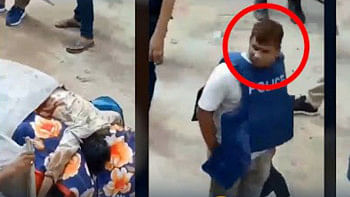Russia: Iran's enigmatic ally and key crisis player
Russia, which has the deepest relations with Iran of any big power, is to play a critical role in the Iranian nuclear crisis in the next months as the clock ticks on efforts to find a diplomatic solution.
Moscow is a key supplier of military hardware to Tehran, a reliable trade partner in difficult times and is building Iran's first nuclear power plant -- subtle levers to pressure Tehran, which the West does not possess, analysts say.
And after the revelation Iran has been building a secret uranium enrichment site, President Dmitry Medvedev warned Iran at the Pittsburgh G20 that "mechanisms" could come into play if it did not cooperate.
With Western powers warning of a December deadline for Iran to show progress or face further UN sanctions, the crucial question is whether Moscow is prepared to support measures that could cripple the Iranian economy.
According to Rajab Safarov, director of the Centre for Contemporary Iranian Studies in Moscow, Russia has "sufficiently effective levers" to have an effect on Iran's behaviour.
"Iran has an interest in good relations with Russia," Safarov told AFP. "This means that Iran could listen to advice from Russia."
Safarov said that not even Russia has the ability to make Iran halt uranium enrichment operations, which Western powers fear Tehran could use to make a nuclear bomb.
But he said Russia could nudge Iran into "behaving constructively with the International Atomic Energy Agency (IAEA) and showing great openness."
"If progress is made, the Russians will not support sanctions. But if not, Russia could in principle agree to sanctions."
A Western diplomat in Moscow said the big question is "where will the Russians be" when crunch time comes at the end of the year.
Crucially, Russia has still not fulfilled a 2005 contract to supply Tehran with its S-300 air defence systems which could seriously complicate any plans for a US or Israeli air strike on Iranian nuclear facilities.
Russia's reluctance to supply the missiles to Iran gives it another useful lever to Tehran, Western diplomats say, although mystery surrounds reports a cargo ship allegedly hijacked in July was actually carrying S-300s to Iran.
Analysts have also speculated that Russia could be prepared to give ground over Iran in return for the US change of mind over plans for a missile shield in Eastern Europe.
Russia invited Iranian President Mahmoud Ahmadinejad to talks in Moscow ahead of the UN General Assembly in a bid to convince him to make concessions but Iran turned the offer down, the respected Kommersant newspaper reported.
Adding to the uncertainty, Prime Minister Vladimir Putin, seen by most as Russia's true strongman, has yet to reaffirm Medvedev's apparent tougher line on Iran.
But a major visit by then president Putin in October 2007 to Tehran -- the first by a Kremlin chief since Stalin -- failed to bring about any discernable shift in Iranian policy.
For Viktor Kremenyuk, deputy director of the Institute for US and Canada Studies, Russia and the United States have more in common than differences on Iran as "both are against Iran obtaining nuclear weapons".
"It is the manner of acting to obtain this end that is not the same," he said.
Although Russia is one of few countries to have had robust relations with both the deposed Pahlavi imperial dynasty and the Islamic Republic, relations between Moscow and Tehran have not always been easy, even in modern times.
Russia was a major player in the "Great Game" battle for influence in Persia that is still regarded with cynicism in modern Iran.
Russians for their part painfully remember the killing of one of their greatest playwrights, Alexander Griboyedov, in Tehran in 1829 by a mob incensed by his diplomatic delegation's treatment of harem women.
And while the Soviet Union was not displeased to see pro-US shah Mohammad Reza Pahlavi ousted by the 1979 Islamic Revolution, ties turned sour when Moscow began arming Saddam Hussein's Iraq in its war with Iran.
In the early years of the Islamic Republic, "Death to the Soviet Union" was as much a mantra for the faithful as the still familiar "Death to America".
But after the end of the war and the collapse of the Soviet Union, relations improved with Russia emerging as key supplier of civilian and military technology for Iran.
It was Russia that in 1995 signed a contract with Iran to build its first nuclear power station in the southern city of Bushehr, a project expected to go online at the end of the year after numerous delays.
And when turmoil erupted after Iran's disputed presidential elections in June, Ahmadinejad headed to a summit in Russia for the golden photo opportunity of a smiling handshake with Medvedev.
"Russia is the most important partner of Iran in the development of its nuclear programme. No other country in the world is cooperating so much with Iran," said Safarov.

 For all latest news, follow The Daily Star's Google News channel.
For all latest news, follow The Daily Star's Google News channel. 




Comments